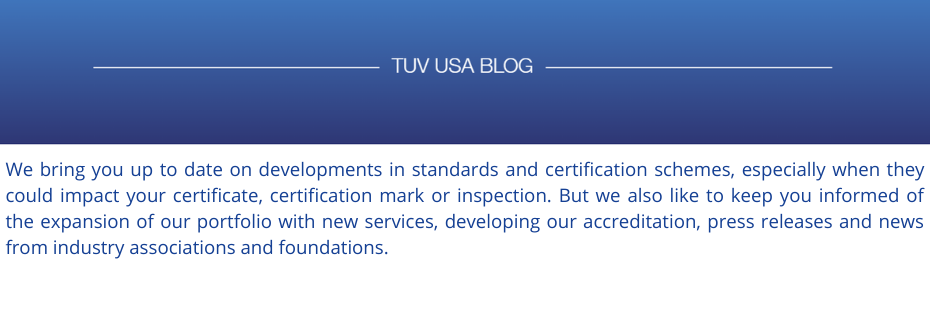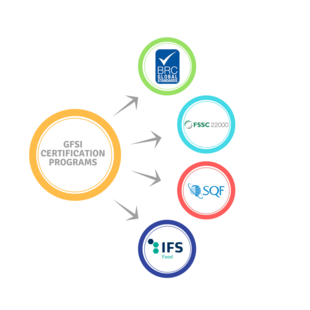
Monday, December 17, 2018
Charity Begins Within

Monday, September 10, 2018
TUV USA, Inc. has received full recognition as a Recognized Auditing Organization under the MDSAP Program
Salem, New Hampshire -- TUV USA, Inc. announced today that as of September 5, 2018, TUV USA has received full recognition as a Recognized Auditing Organization under the MDSAP Program.
In 2014, a few third-party auditing organizations were chosen to be part of the Medical Device Single Audit Program (MDSAP). The idea was to create a program that would aid in the easing of trade barriers for international medical device companies who would wait several years just to have their applications approved to sell to a new jurisdiction. The manufacturers would then face a rigorous and exhaustive annual audit program from each jurisdiction to which they sold, sometimes taking many weeks to complete for larger organizations. MDSAP was created as a solution to this.
MDSAP represents an agreement between member countries to accept the involvement of third-party auditing organizations to improve the approval processes, reduce the workload on Regulatory Authorities, and reduce the number of audits from Regulatory Authorities that medical device manufacturers have to coordinate. To date, there are five jurisdictions involved in MDSAP: Australia, Brazil, Canada, Japan, and the United States.
This has been an exciting journey for all of us involved, and we are looking forward to seeing how the MDSAP program further develops! TUV USA is proud to be one of the few certification bodies providing the new MDSAP certification.
Wednesday, February 28, 2018
Unique Features of GFSI Benchmarked Standards for Food Manufacturers
Each scheme is fundamentally similar as it is based on a core set of minimum standards established by the GFSI Benchmarking Requirements document (also known as the GFSI Guidance Document). This provides a framework for scheme owners (also known as certification program owners or CPOs) in establishing and maintaining certification standards and audit protocols, which result in certified food safety management systems (FSMS) of similar quality and effectiveness. At the most basic level, the benchmarking document requires scheme owners to develop standards that contain a core set of FSMS programs based on current, global regulation/ guidance and industry best practices. Notably, some of these programs include a food safety (HACCP) plan, good manufacturing practices (GMPs), food defense plan, food fraud vulnerability assessment, and supplier management program. However, each scheme offers a unique structure, set of requirements, and protocol for assessing a manufacturing site’s food safety system to meet both GFSI requirements and scheme stakeholder input. continue reading...
Monday, January 15, 2018
Data Protection Management Systems and the GDPR

It is important to understand that you need to comply with GDPR, even if you don’t have a legal entity in the EU. As long as you collect, process, exchange, or store personal identifiable information (PII) of EU and EEA citizens (referred to as Principals), you will need to ensure you comply with these regulations. Non-compliance and data privacy breaches may result in fines – up to 20 million Euro or 4 % of your global annual revenue – whatever is higher. You should really avoid that.
Many of GDPR requirements are focused on the legal basis for collecting and processing Principals’ PII. At its basis is the idea that collecting and processing Principals PII is forbidden by law – unless there is a legal basis (by law, contract etc.), or you have a clear - and evidence based - consent. This creates a clear “Data Privacy by Default” and “Data Privacy by Design” working standard for companies looking to do business with the EU and EEA states, giving Principals the opportunity to control the use of their PII, including if you intend to change the use of PII already collected.
The message is clear to companies: you are obligated to get the Principal’s consent BEFORE you collect data and for a new or changed consent BEFORE you change the purpose of the use of PII already collected.
The first data protection law was published in 1970 in the German federal state of Hessen. In 1974 the US Privacy Act was introduced. In 1980, the Organization for Economic Co-operation and Development (OECD) launched the first version of international data privacy principles, designed to ease the international exchange of information based on a common understanding.


